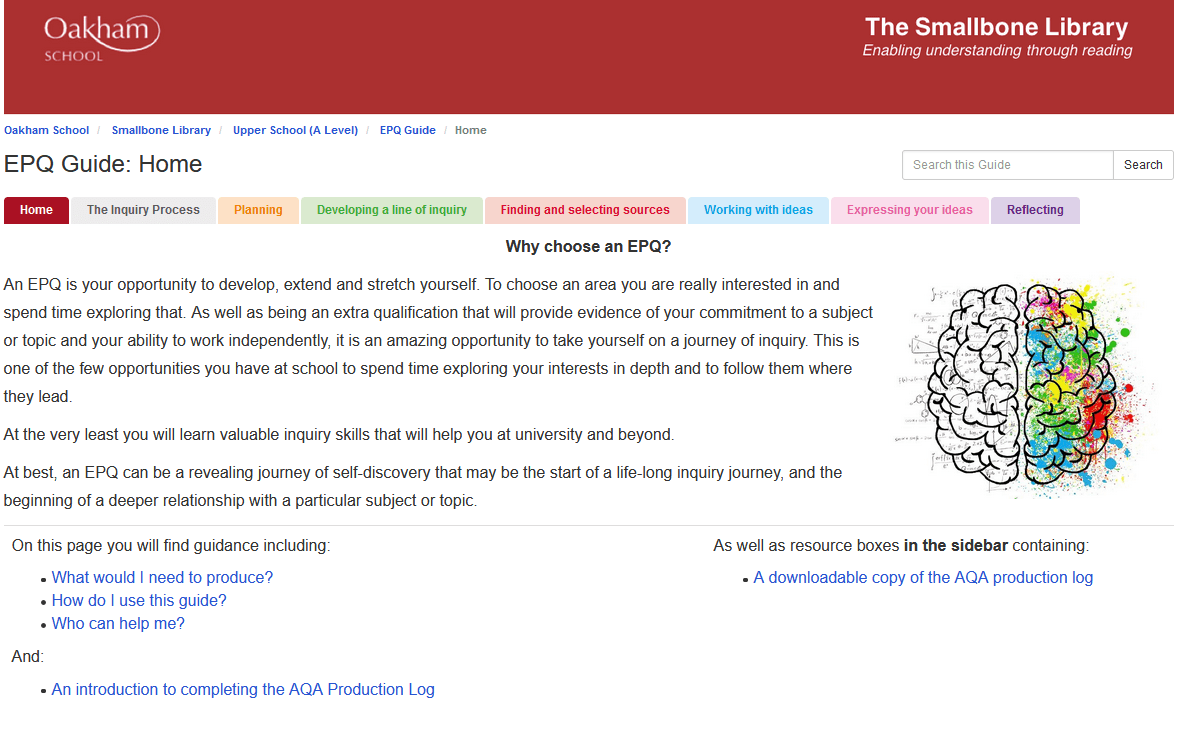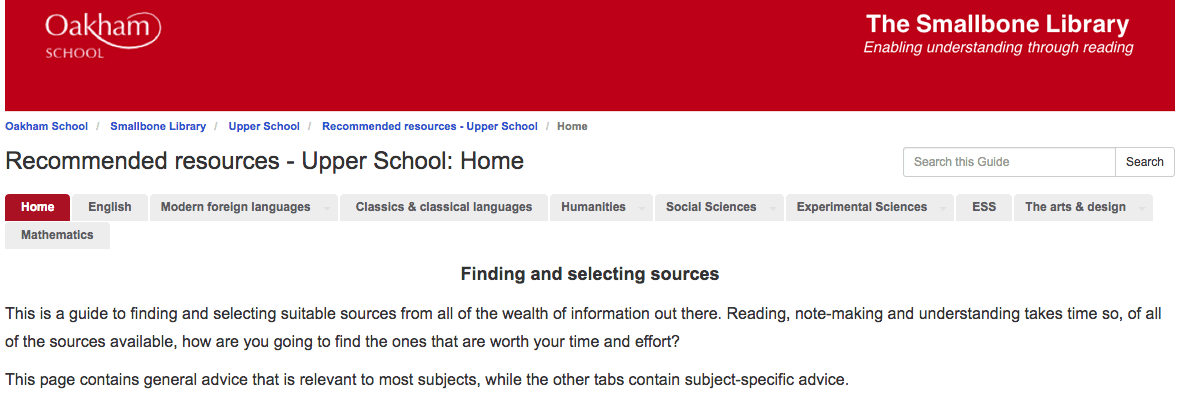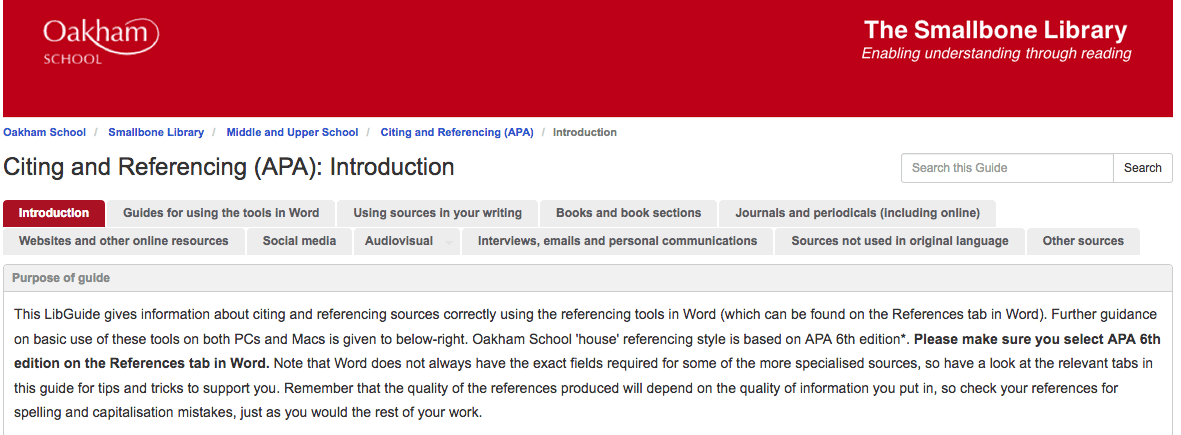We have recently made some progress in terms of expanding our Library support for the EPQ. Chris, our Head of Student Research, already does a great job of supporting and supervising all the EPQ students and has for many years but, compared with the IB Extended Essay, the Library has not historically provided any coordinated support. As the cohort has grown in recent years Chris and I have been discussing for some time how we could best collaborate to support the students. As a result I have put together a new EPQ LibGuide, which gives students central access to all the resources they need and guidance on the structure of an inquiry.

The guide also gives them links to other Library resources they might find useful, such as our guide to Recommended resources for Upper School and to Citing and Referencing in Word.


Something I have discovered as I have worked with our guides (and I would imagine this is very similar using other online platforms such as VLEs) is the importance of creating central guides/resource collections that are useful for large groups of students (e.g. in this case Upper School students) and then linking to them from other more subject/topic specific guides rather than dispersing that information throughout the system. This both saves lots of time because you aren’t always reinventing the wheel but also, critically, makes it easier to keep the resources up to date. It seems so obvious now, but when I started this journey I had a lot to learn about making a connected, easy to navigate and maintain online space (and I still have a long way to go!). It is very easy to focus too hard on making a site or collection as easy as possible for users to navigate OR as easy as possible for creators to maintain without considering both these needs together. And if I set something up in a hurry both these needs can go out of the window in favour of the immediate need to get something up quickly that does the job – and I always regret that later!
My involvement with EPQs has been very indirect compared with IB EEs and this EPQ guide is very much a first effort and will certainly evolve over time. All constructive criticism and advice welcome.